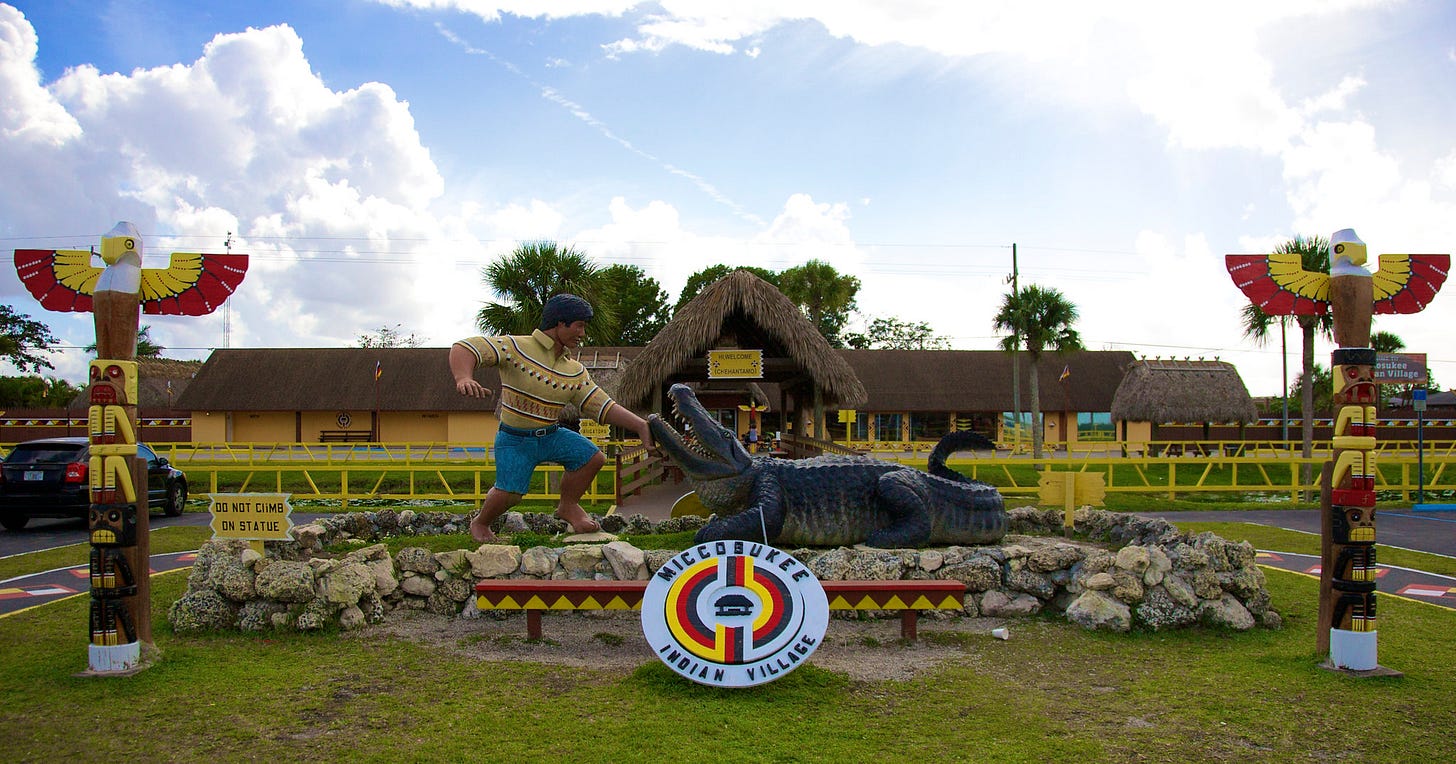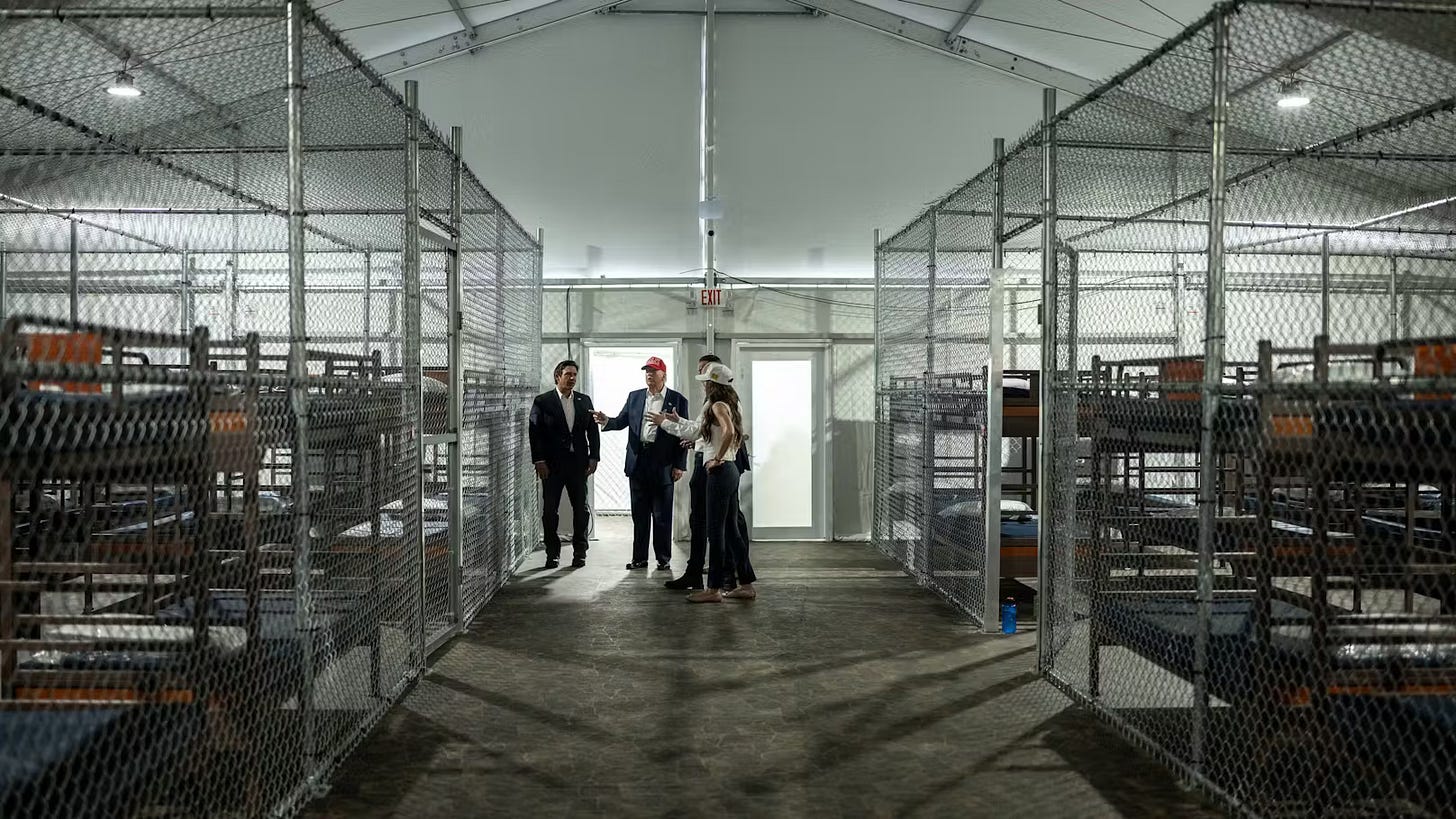A federal judge has ordered the shutdown of the migrant detention center known as “Alligator Alcatraz,” handing a decisive victory to the Miccosukee Tribe of Indians and their allies. The center, built in the fragile wetlands of the Florida Everglades, has faced outrage since its inception, with accusations of environmental destruction, abuse of detainees, and blatant disregard for Indigenous rights.
Judge Kathleen Williams ruled that the facility violated the National Environmental Policy Act, citing the absence of mandatory environmental assessments. The court found that the construction directly damaged endangered species habitats, polluted water systems, and disrupted cultural access to tribal lands. The ruling halts all new detainee transfers, blocks further construction, and orders state and federal authorities to dismantle much of the infrastructure within 60 days.
For the Miccosukee Tribe, the victory is more than legal, it is cultural survival. Tribal leaders warned from the start that the project threatened sacred sites and ancestral connections. This ruling recognizes that Indigenous rights cannot simply be bulldozed for the sake of another prison camp.

“Alligator Alcatraz” had become a symbol of cruelty, with detainees reportedly facing abuse, overcrowding, and denial of due process. Now it will also be remembered as a place where Indigenous people stood their ground and won. The Miccosukee Tribe, alongside environmental groups, forced accountability in a system that rarely yields to either.
But whether this victory translates into actual closure remains uncertain. Trump’s regime has a long record of ignoring court orders, dragging out appeals, and using raw power to continue operations that judges have deemed illegal. The Everglades may have won a reprieve on paper, but until the fences come down and the detainees are released, skepticism is more than justified.
The dismantling of Alligator Alcatraz is not guaranteed. It is a test of whether law still holds sway over authoritarian power. Indigenous communities and their allies forced a crack in the system. The coming months will reveal if that crack can be widened into real justice, or if the concentration camp simply changes its name and carries on.



